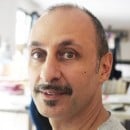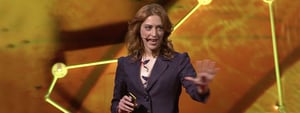Stress makes us sick only if we believe it makes us sick. This is the interesting theory of Kelly McGonigal, a psychologist from Stanford University, who opens her well-known TED talk “How to make stress your friend” from 2013 like this:
“My confession is this: I am a health psychologist, and my mission is to help people be happier and healthier. But I fear that something I’ve been teaching for the last 10 years is doing more harm than good, and it has to do with stress. For years I’ve been telling people, stress makes you sick. It increases the risk of everything from the common cold to cardiovascular disease. Basically, I’ve turned stress into the enemy. But I have changed my mind about stress, and today, I want to change yours”.
We need to look at it from another perspective: science tells us that changing the way we see stress can make us feel better. Instead of trying to avoid stress (which is pretty much impossible), it is better to “make it our friend”, learning how to interact positively with it. And changing our minds about what stress means changing how our body reacts to stress.
As McGonigal points out in her article, the idea that we grow through adversity is not new. It is present in the teachings of every major religion and in many philosophies. It has even become a cliché to say, “Whatever doesn’t kill you makes you stronger”.
However, it isn’t that simple.
As we know, stress can be paralyzing and cause serious damage to our lives and to our health. And so, how can we change it into positive energy?
One strategy is to make a conscious decision to see stress as an opportunity to learn and grow. This mind-set can actually shift our stress physiology toward a state that makes a positive result more likely, also in terms of the physiological response of our body.
“I want to tell you about one of the most under-appreciated aspects of the stress response, and the idea is this: stress makes you social. To understand this side of stress, we need to talk about a hormone, oxytocin, known as the ‘cuddle hormone’, because it’s released when you hug someone. But this is a very small part of what oxytocin is involved in. Oxytocin is a neuro-hormone. It fine-tunes your brain’s social instincts. It primes you to do things that strengthen close relationships. Oxytocin makes you crave physical contact with your friends and family. It enhances your empathy. It even makes you more willing to help and support the people you care about.”
Oxytocin not only acts on our psyche. It also acts on our body and one of its main roles is to protect our cardiovascular system from the effects of stress. It is a natural anti-inflammatory, which helps our blood vessels to stay relaxed when we are under pressure.
This is why McGonigal says, “I find this amazing, that your stress response has a built-in mechanism for stress resilience, and that mechanism is human connection”.
People who are good at dealing with stress let themselves be changed by this experience, even in circumstances they would never choose. But the best results are achieved when we consciously decide to take care of others. This is demonstrated in a study conducted in the United States on about one thousand adults between the ages of 34 and 93:
“For every major stressful life experience, like financial difficulties or family crisis, that increased the risk of dying by 30 percent. But that wasn’t true for everyone. People who spent time caring for others showed absolutely no stress-related increase in dying. Zero. Caring created resilience. When you choose to view your stress response as helpful, you create the biology of courage. Stress gives us access to our hearts. The compassionate heart that finds joy and meaning in connecting with others, and your pounding physical heart, working so hard to give you strength and energy. And when you choose to view stress in this way, you’re not just getting better at stress, you’re actually making a pretty profound statement. You’re saying that you can trust yourself to handle life’s challenges. And you’re remembering that you don’t have to face them alone”.

